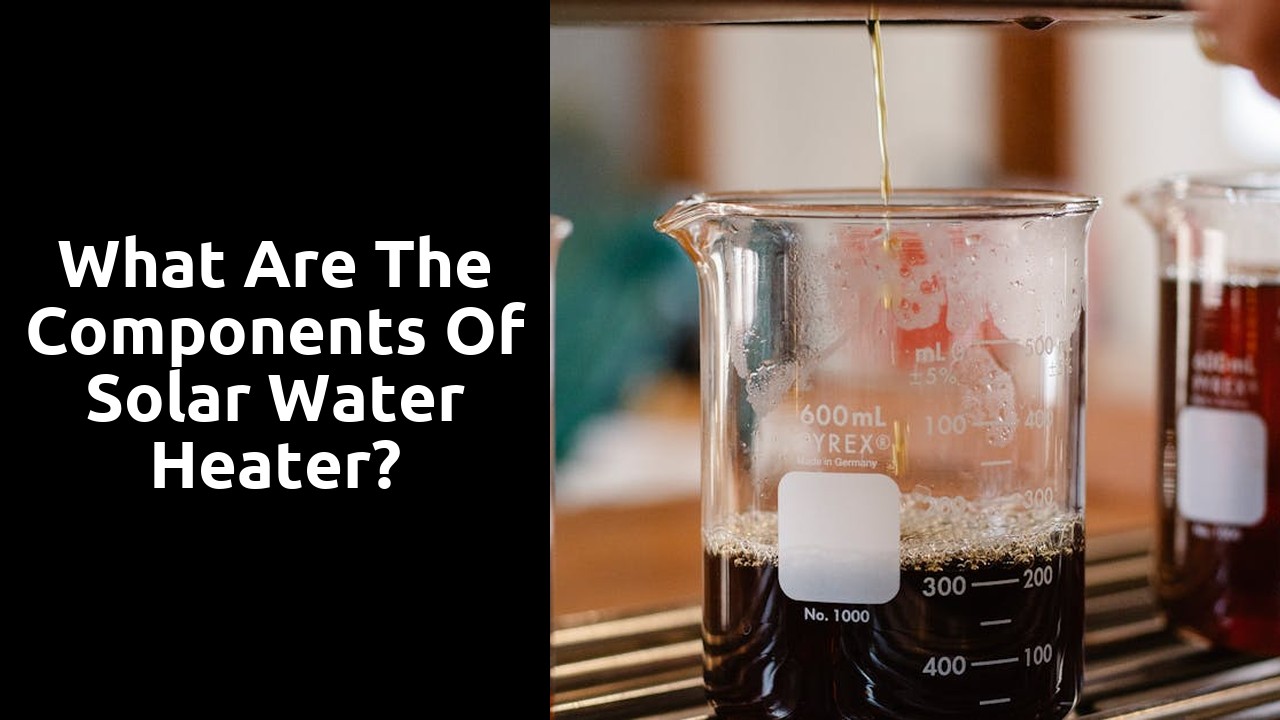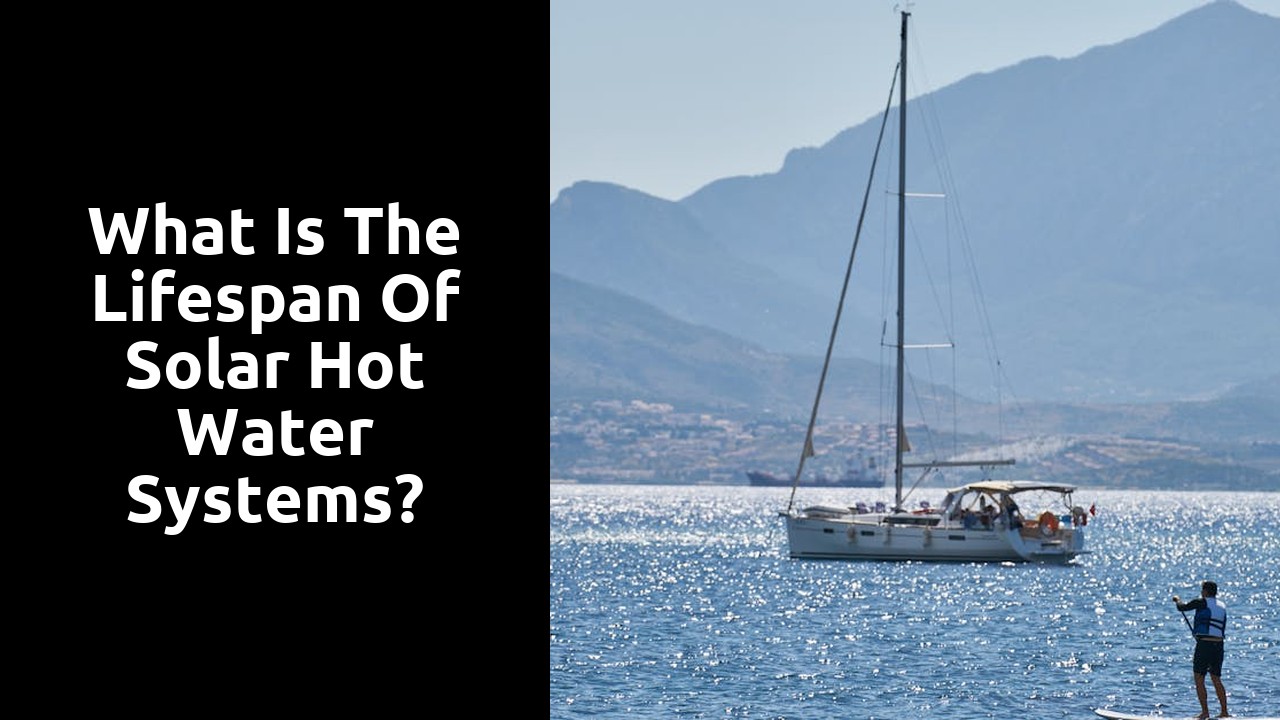
Table Of Contents
Factors to Consider When Choosing a Solar Water Heater
When considering a solar water heater for your home, several key factors should be taken into account. Firstly, the size of the system should be compatible with your household's hot water demands. It's essential to assess the number of occupants in your home and their average daily hot water usage to ensure the system can meet your needs efficiently. Additionally, evaluate the climate and solar resource availability in your location to determine the effectiveness of a solar hot water system in your area. Understanding these aspects will help you select a system that maximizes energy savings and performance.
Another crucial consideration when choosing a solar water heater is the quality of its components and durability. Opt for systems that are made from high-quality materials to ensure longevity and efficiency. Look for systems that offer warranties on key components such as the solar collectors, storage tanks, and Solar Hot Water System Replacement Parts to protect your investment. By selecting a reliable and durable solar water heater, you can enjoy hot water savings for years to come while reducing your environmental impact.
Insulation Materials
Insulation materials play a vital role in the performance and efficiency of a solar water heater system. Proper insulation helps to retain the heat within the system, preventing unnecessary heat loss and ensuring that hot water is readily available when needed. Common insulation materials used in solar water heaters include fiberglass, foam, and polyurethane. These materials are chosen for their ability to withstand high temperatures and their effectiveness in reducing heat loss, ultimately contributing to the overall energy efficiency of the system.
When considering insulation materials for a solar water heater, it is essential to opt for high-quality options to maximise the system's performance. Insulation materials that are specifically designed for use in solar hot water systems are the best choice as they are tailored to withstand the unique demands of such systems. Proper insulation not only improves the system's efficiency but also prolongs the lifespan of the system, reducing the need for frequent maintenance or replacement of Solar Hot Water System Replacement Parts.
Installing a Solar Water Heater System
When installing a solar water heater system, it is crucial to consider the necessary piping and fittings to ensure the efficient functioning of the system. Properly sized and high-quality piping and fittings are essential to prevent leaks and ensure optimal water flow. Additionally, the materials used for the piping should be durable and corrosion-resistant to withstand prolonged exposure to water and varying weather conditions.
Another key component to address when installing a solar water heater system is the availability of solar hot water system replacement parts. It is advisable to have spare parts on hand to quickly address any potential issues that may arise in the future. By keeping replacement parts readily available, homeowners can minimise downtime and ensure that their solar water heater system continues to operate smoothly.
Piping and Fittings
Piping and fittings are crucial components in a solar hot water system. They serve as the conduits through which the hot water travels from the solar collectors to the storage tank. Choosing high-quality piping and fittings is essential to ensuring the efficient and uninterrupted flow of hot water throughout the system, minimizing heat loss and maximizing the system's performance. Common materials used for piping and fittings include copper, plastic, and stainless steel, each with its own advantages and suitability depending on the specific requirements of the solar water heater system. When considering replacement parts for a solar hot water system, it is important to select piping and fittings that are compatible with the system's design and operational needs to maintain optimal functionality and longevity.
Solar Hot Water System Replacement Parts play a significant role in the seamless operation of a solar hot water system. In the event of leaks, corrosion, or other damages to the existing piping and fittings, sourcing the appropriate replacement parts is crucial for restoring the system's functionality effectively. By using high-quality replacement parts designed for compatibility with the system's specifications, the risk of future malfunctions or inefficiencies can be reduced. Regular maintenance and periodic inspection of the piping and fittings in a solar hot water system can help identify any issues early on and facilitate timely replacement with suitable parts to ensure consistent and reliable hot water supply.
Solar Water Heater Innovations
Solar Hot Water System Replacement Parts have been instrumental in enhancing the efficiency and durability of solar water heaters. These parts, such as improved insulation materials and high-quality piping and fittings, play a crucial role in ensuring that the system operates optimally.
Additionally, innovations in solar water heaters have led to the development of sophisticated control systems, allowing for better monitoring and management of the heating process. These advancements have significantly improved the overall performance of solar water heaters, making them a more reliable and cost-effective option for households and businesses alike.
Control System
In a solar water heater system, the control system plays a crucial role in ensuring efficient operation and optimal performance. The control system is responsible for regulating the temperature of the water in the storage tank, ensuring that it is neither too hot nor too cold. It also helps to prevent overheating of the water by regulating the flow of energy from the solar collectors to the storage tank. Additionally, the control system can be equipped with sensors that allow it to monitor the amount of sunlight and adjust the system accordingly.
When considering solar hot water system replacement parts, it is important to factor in the control system as a key component. The control system is essential for the overall functionality of the solar water heater, ensuring that it operates effectively and efficiently. By investing in a high-quality control system, homeowners can maximise the performance of their solar water heater and enjoy hot water on demand while reducing their energy bills and carbon footprint.
FAQS
What are the main components of a solar water heater?
The main components of a solar water heater include solar collectors, a storage tank, a heat exchanger, a pump, and a controller.
How do solar collectors work in a solar water heater system?
Solar collectors absorb sunlight and convert it into heat, which is then transferred to the water in the storage tank through a heat exchanger.
What is the purpose of a storage tank in a solar water heater?
The storage tank in a solar water heater is used to store the heated water until it is needed for use in the household.
Why is a pump necessary in a solar water heater system?
A pump is used to circulate the water between the solar collectors and the storage tank, ensuring efficient heat transfer.
What role does the controller play in a solar water heater system?
The controller monitors the temperature of the water in the storage tank and controls the operation of the pump to optimize the performance of the solar water heater.
